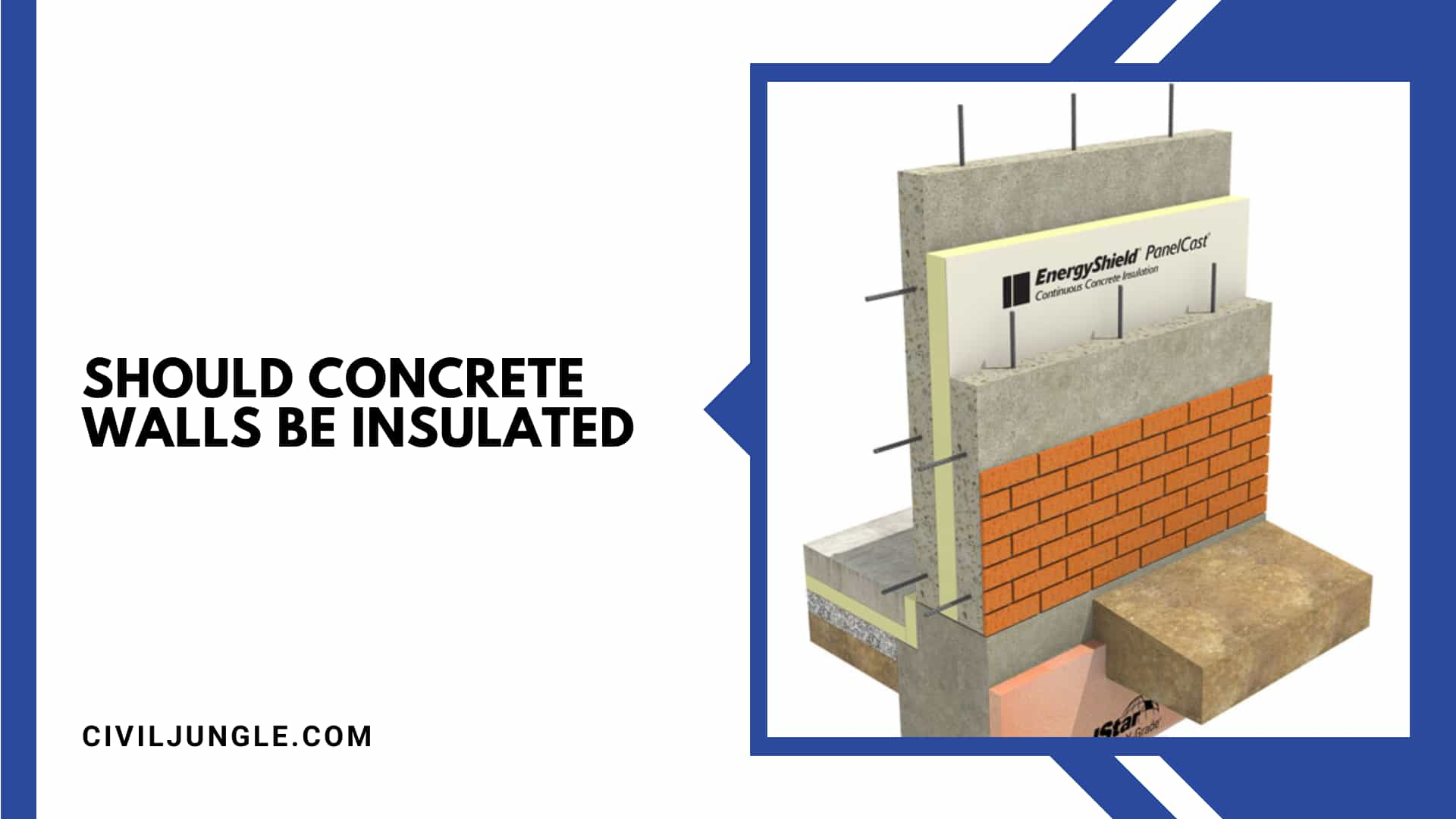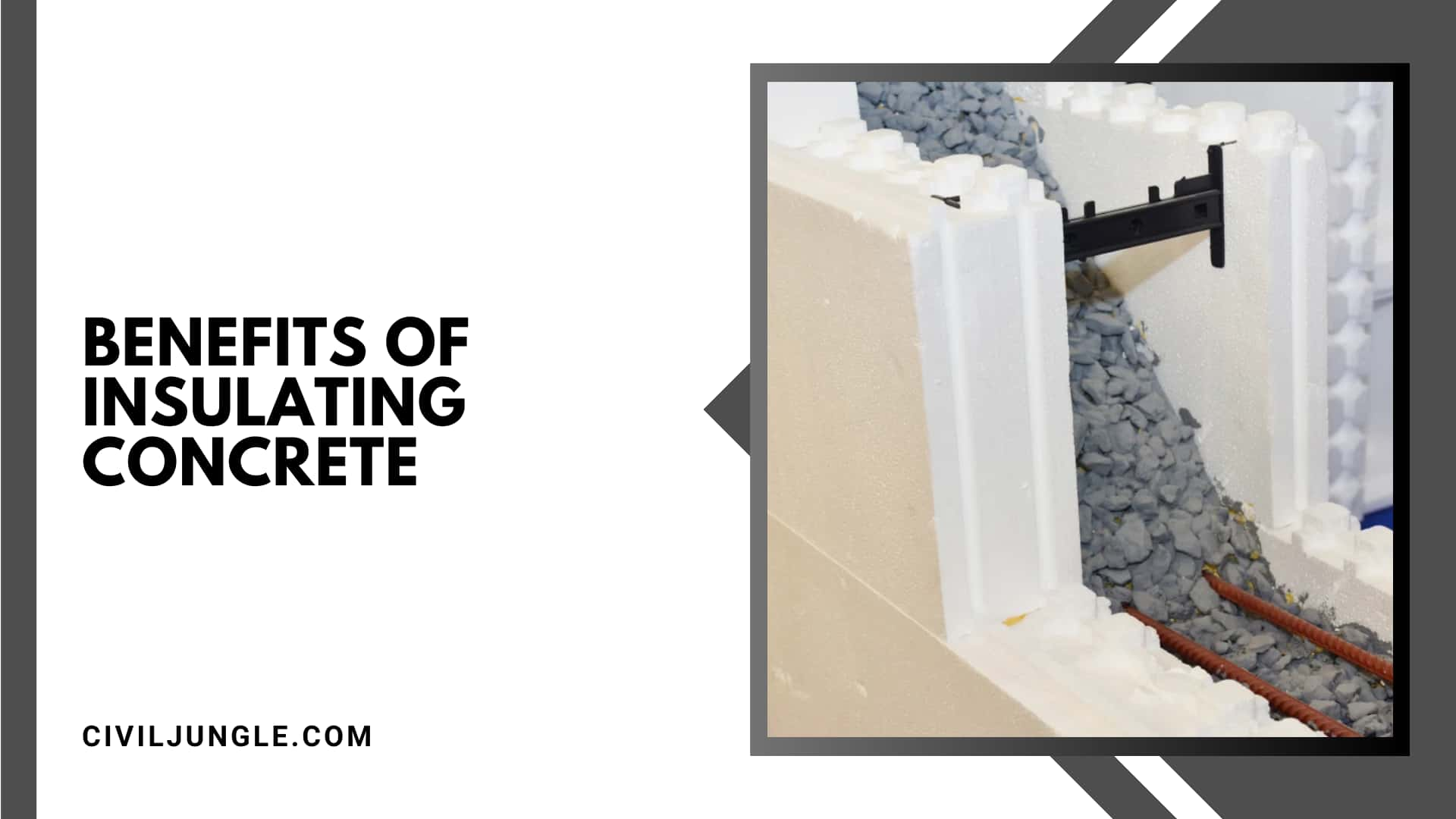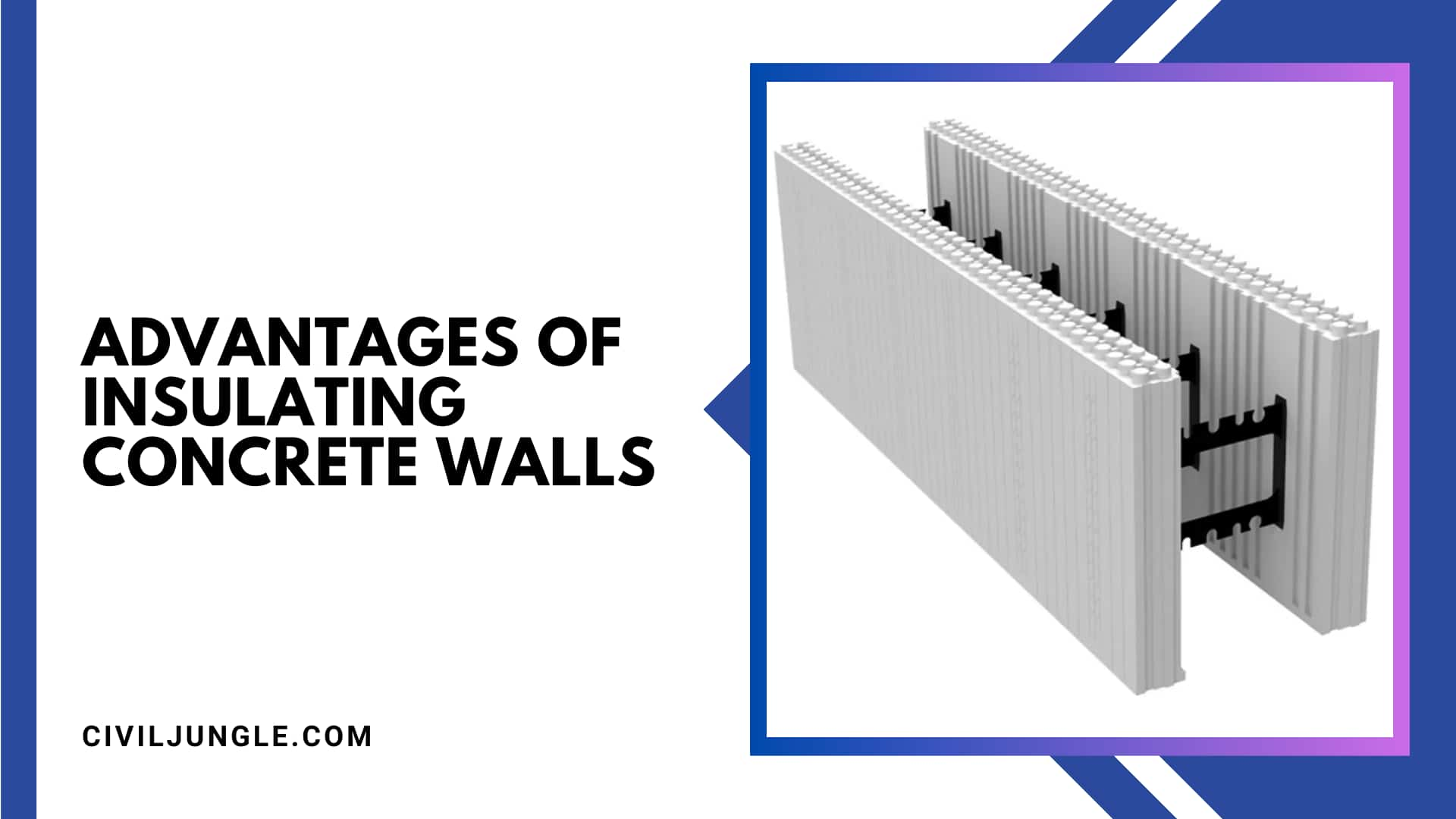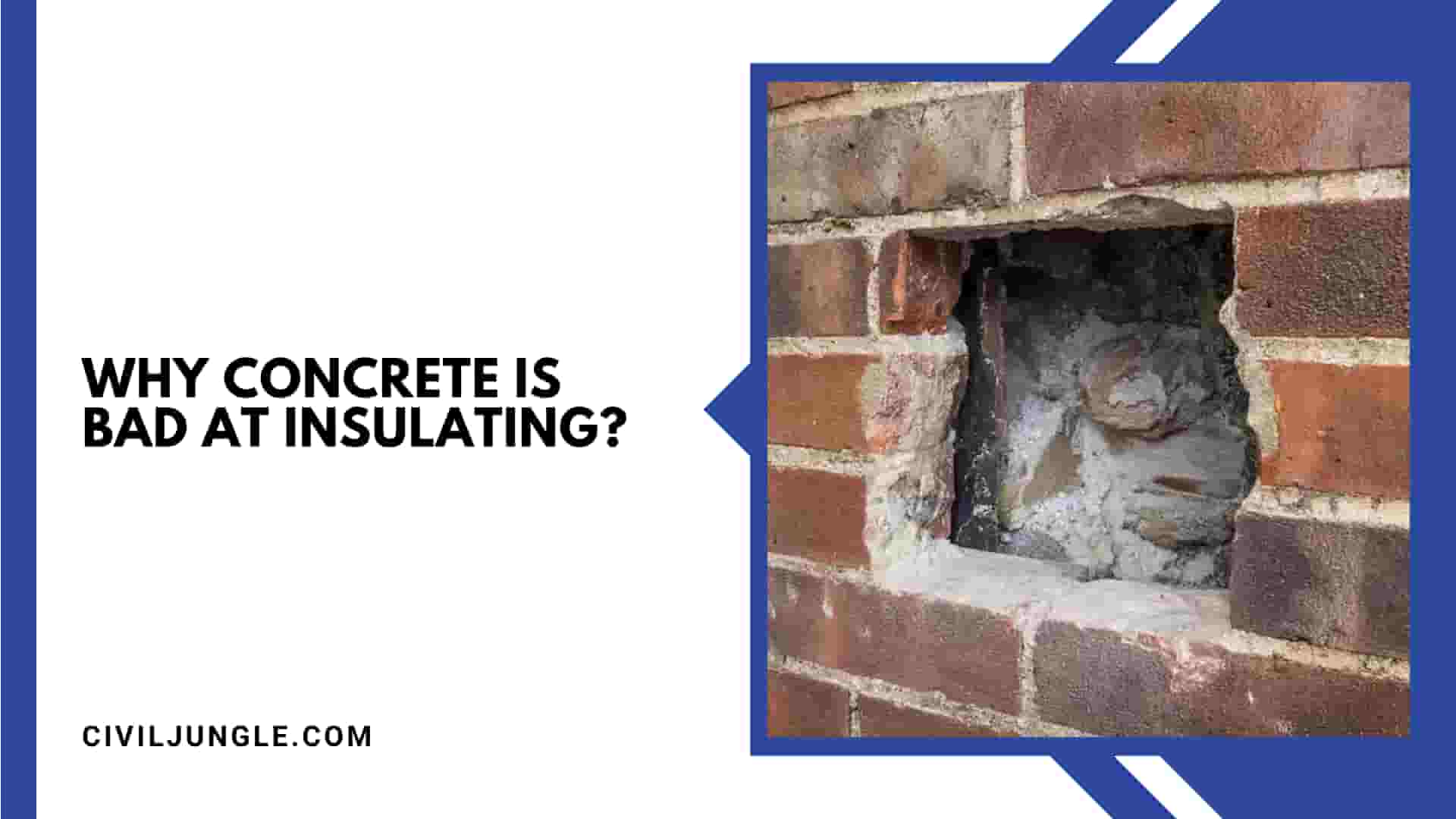
Should Concrete Walls Be Insulated?
Yes. The home makes them more comfortable, improves their energy efficiency, helps prevent mold, and results in savings on monthly energy bills.
And the best part is relatively easy and cheap too. Creates a sound barrier between rooms.
One of the building materials is commonly used for concrete differently.
A very strong concrete, a terrible insulator, and reliable building material.
There is hot and cold pass through it. We use materials like concrete thermal bridges, In the construction industry.
Any heat will pass through the concrete inside the house with little resistance. Concrete is a bridge tract that lets your heat out.
A luxurious material that concrete has been used for centuries to build homes worldwide. It is easy to work with, considered strong, and resistant to the elements.
But concrete offers very low natural insulation levels for all its strong points.
We retain heat and eliminate bridging by adding insulation. And that insulating concrete is needed to control the temperature of the living in space.
Two options for correcting this polarity of seasons are insulating the concrete walls or leaving them as is.
Also, Read: Dry Pack vs Wet Concrete
Benefits Of Insulating Concrete

Since the 1970s, insulated concrete forms (ICFs) have grown in popularity.
Building materials manufacturers insulated concrete, and homeowners benefit from the increased energy efficiency, comfort, and safety.
At the same time, builders and installers generate more leads, build it up faster, and ultimately reduce their Increases in the bottom line.
In many houses, concrete is used for the walls of the first and second floors.
Other countries, particularly in Europe, rely on concrete and masonry products. Insulating those concrete walls is essential because this is your primary area.
Also, Read: What Is a Micropile
Advantages of Insulating Concrete alls

1. Energy Efficiency Conservation:
The average required anything that reduces energy to perform a particular task is considered energy efficient.
For example, if your heating bill is $400 per month, then you insulate the concrete walls for $200 per month, then this is an energy efficiency factor.
The insulation is energy efficient because it reduces the heating and cooling needed to control your home temperature.
Also Read: Concrete Slab Work
2. Mold Reduction:
Concrete basements and garages are very susceptible to the issue. Mold and mildew are fungi that grow in moist, cool, and dark conditions.
A very porous material is concrete because it is like a sponge for water, and the tiny nooks, and crannies that make up the concrete.
Water likes to find its way into concrete and wreaks on the physical structure.
Water in concrete creates gaps, affects the integrity of concrete screed, and gives rise to mold issues.The garages and concrete basements are highly susceptible to the problem.
And it uses spray foam to recommend the insulated concrete walls.
The kind there is spray foam insulation: The open-cell and closed-cell. They suggested that closed-cell ensures water is closed off from the concrete to prevent unwanted damage.
3. Saves Money:
The insulating concrete walls reduce that heating and cooling costs.
Your temperature in the steadier these spaces that you have to use for the heat or AC to regulate the temperature.
Homes with poor insulation have much heat loss.
The Insulating concrete walls reduce the heat transfer of the outside elements and the inside conditioned space, adding a very high R-value to a material.
If concrete walls are not insulated, you will spend money on the temperatures up and down-regulating.
The insulation layer prevents heat loss and keeps the temperature in check, saving money.
Also, Read: I Beam Vs H Beam
Best Insulation To Use With Concrete
The insulation is better than others used with concrete.
The most common include rigid foam insulation under slab or concrete insulation, such as expanded polystyrene (EPS), extruded polystyrene (XPS), and radiant insulation, Prodex.
1. The Closed-Cell Foam:
An additional vapor barrier can help keep the water out and prevent mold. A concrete wall interior is insulated with spray foam.
Use closed-cell spray foam, not open-cell foam. Closed-cell foam is better than resisting moisture that penetrates through the concrete.
The higher basement insulation in climate zones and the international residential code require three.
- The R-5 in the climate zone.
- The R-10 in climate zone 4 (except marine zone 4).
- The R-15 in marine zone 4 and climate zones 5, 6, 7, and 8.
One of the most popular types of fiber cement has become in cladding in the States due to its long-term durability. And no matter your climate, fiber cement siding helps the owners protect the building’s exterior and effectively insulate it.
2. The Rigid Foam:
A good vapor barrier is a rigid foam. For more than protection, caulk the seams and apply tape.
They will keep out the moisture and airflow. A 2-inch layer of XPS foam (R-10) is sufficient insulation in climate zone 4.
However, if you live in marine zone 4 or zones 5, 6, 7, or 8, you need at least 3 inches of XPS or EPS to meet the minimum code of the requirement R-15; the 4 inches are required if any other wallboard is secured with the furring strips of drywall and wood.
Also, Read: Types of Shovels
Why Concrete Is Bad at Insulating?

The R-value is based on the materials that heat-resistant transfer the material. The higher the R-value, the more resistant it is to heat or cold transfer.
The mixture is to the concrete’s R-value depending on its thickness. A solid concrete wall is 12 inches thick and only has an R-value of around 2.
Compare this to rigid foam with an R-value of 3-4 per inch. A 12-inch-thick foam wall would have an R-value of 36 and 48.
The insulation foam is 20 times more energy efficient than concrete. Many pieces of concrete that get sun absorb the heat and release it slowly.
A higher R-value of the concrete had it would prevent the absorption and transference of the heat.
Also, Read: Queen Size Bed Dimensions in Feet
Tips for Bad at Insulating
Herem, the following, point for bad insulating inconcrete ara as follwos.
1. Interval:
It is also a great vapor barrier. A thermal break is created that prevents heat loss. If you are building a stud wall, you want to butt it against the concrete wall, leaving about 2 inches of studs.
Fill this gap, as well as the space between the studs, with spray foam.
2. Keep water out:
Using permeable insulation, a damp concrete wall must dry out on the inside.
You do not want to let any of the moisture enter your wall, do not worry about the inside If it gets wet and needs to be sealed from the outside.
3. Insulation is cost-effective:
In a cold climate, installing concrete wall insulation almost always saves you money through lower energy bills.
4. Make sure the basement is dry:
It’s very important to find and fix a water problem before you insulate because if you don’t, you will hide the problem, not fix it.
Before they install new wall insulation, ensure no water seepage in your basement. You will need to remove the insulation afterward to fix this water problem.
5. Polyethylene’s Vapor barriers should be avoided:
Polyethene should never be incorporated into a wall system. You don’t need poly for concrete and foam insulation, nor do you want poly for drywall and insulation.
Polyethylene can trap this moisture, leading to mold or even rotting of the wood.
Insulated walls are less susceptible to condensation and mold.
Do Concrete Walls Need Insulation?
Any heat inside the home will pass right through the concrete with very little resistance. The concrete acts as a sort of bridge for your heat to get outside.
We eliminate the bridge and keep heat in by adding insulation. In order to regulate the temperature of a living space, concrete needs to be insulated.
Insulating Concrete Block Walls Florida
The maximum recommended insulation for Florida homes is a 3/4″ polyiso board with a reflective side. The board is glued or nailed to the inside face of the masonry wall with the foil face pointing inward.
3/4″ furring strips are then attached over the board and the drywall attached to the furring strips.
How to Insulate a Concrete House?
Spray foam is a great way to insulate concrete walls because it’s not only a great insulator but also water resistant. There are two kinds of spray foam insulation, closed-cell and open-cell. Closed-cell is better for concrete because it’s more water resistant.
How to Insulate Concrete Walls?
Depending on whether the concrete block walls will be covered or if the top of the wall is exposed can really change the way they are insulated.
The option for insulating concrete block walls includes spray foam insulation, injection foam insulation, polystyrene beads, foam boards, and loose-fill masonry insulation.
Is Concrete a Good Insulator of Heat?
Although concrete is not a particularly good insulator, heat loss or gain through a concrete slab is unlikely to be as significant as heat transmission through above-ground parts of your home, such as windows and doors, which are directly exposed to cold air and sunlight.
Benefits of Icf Construction
- Structural Safety.
- Comfort.
- Energy Efficiency.
- Durability.
Insulating Concrete Formwork (Icf Technique)
Insulating concrete formwork (ICF) is a building system that uses lightweight formwork (made from an insulating material) to support concrete walls whilst they are being cast in-situ and which is then left in place as insulation.
Icf Home Problems
Excessive moisture absorption within the foundation that can cause floors to creak and doors and windows to jam. Moisture absorption within a foundation which can lead to bending or sagging walls.
A musty odor in your crawlspace or basement that indicates an accumulation of mold and mildew due to moisture infiltration.
Disadvantages of Insulated Concrete Forms
- ICF construction foundations usually cost more to complete versus the standard wood form and pour.
- ICF forms require extra support during setup to ensure the forms remain in place before and after pumping the concrete into the ICF forms.
Insulated Concrete Forms Price
ICF forms cost an average of $3.50 to $4.00 per square foot. Once you factor in additional costs like concrete, rebar, hardware, labor, insurance, etc, the average total cost using ICF forms can be around 15-20% more than stud framing.
Is Concrete a Good Conductor of Heat?
Concrete is a much better conductor of heat and is not an insulator. Concrete alone offers almost no insulation (R-value).
When working with concrete, it’s very important to use rigid foam if you want some insulation from your concrete walls and floors.
Is Concrete a Good Sound Insulator?
Whereas soundwaves might pass through other materials much easier and continue to travel, concrete tends to predominantly reflect soundwaves, and also absorb some of the energy too.
This makes it the ideal material for creating soundproof walls.
Like this post? Share it with your friends!
Suggested Read –

